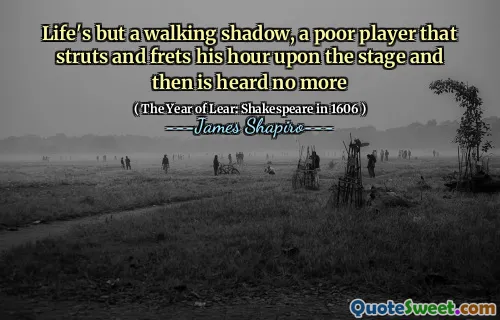
No bishop, no king"; he might have added, "No devil, no divine right.
In "The Year of Lear: Shakespeare in 1606," James Shapiro explores the intricate relationship between power and authority during Shakespeare's time. The phrase "No bishop, no king" underscores the idea that the church and monarchy are interlinked, suggesting that the stability of kingship relies on ecclesiastical support. This intertwining reflects the political landscape of the early 17th century, where power dynamics were crucial for governance and social order.
Shapiro further complicates this concept by hinting at the absence of supernatural justification for rule, implying "No devil, no divine right." This suggests that the justifications for kingship and authority were deeply intertwined with both religious endorsement and the idea of sin or moral failings. By examining these connections, Shapiro sheds light on the themes of legitimacy, moral authority, and the existential questions about power that Shakespeare grappled with in his works during that pivotal year.











